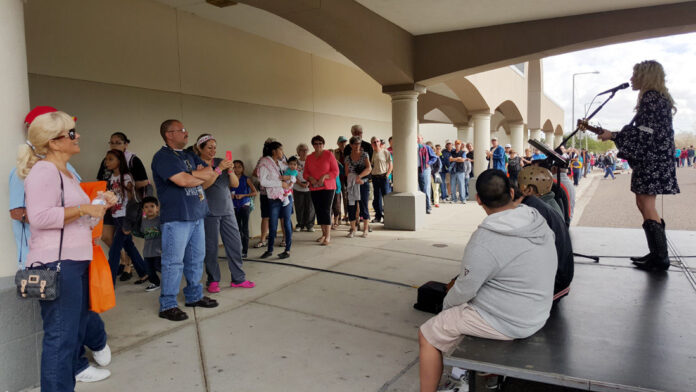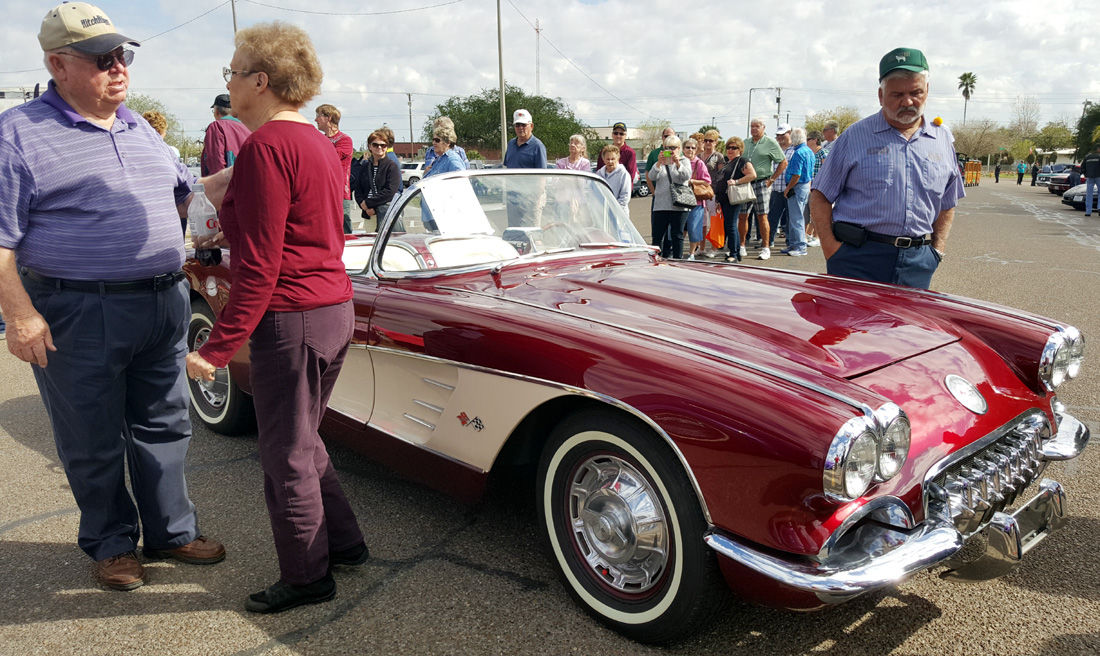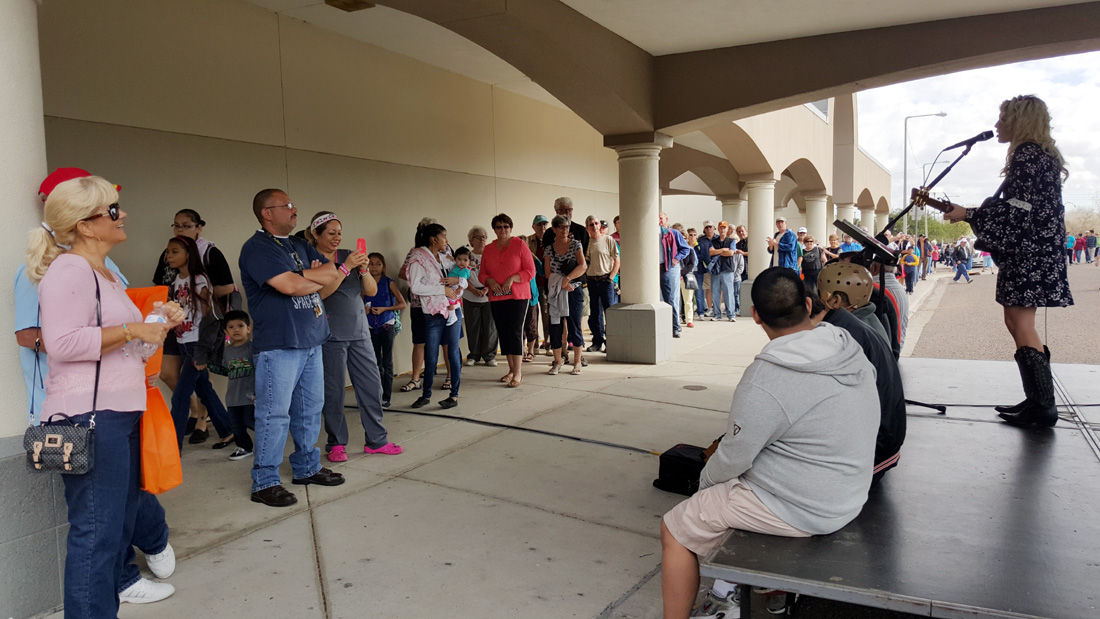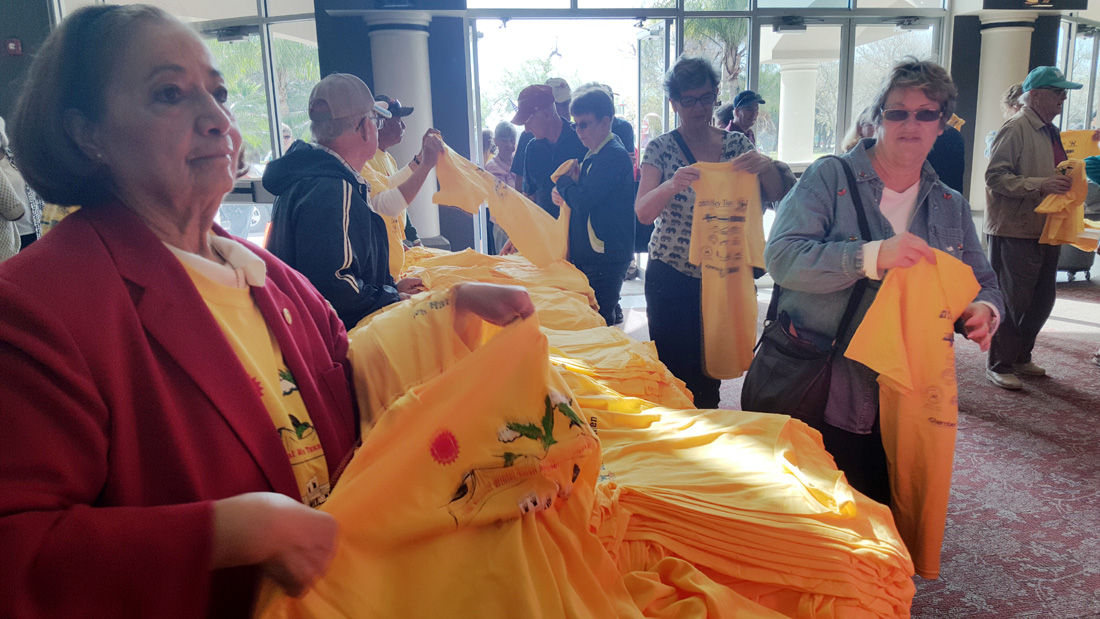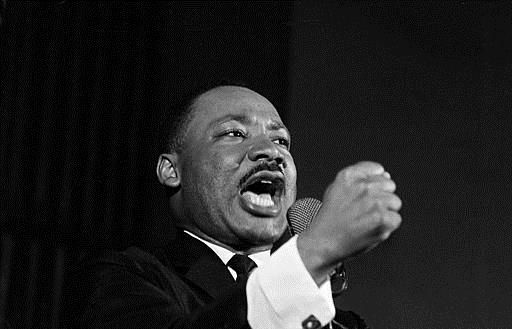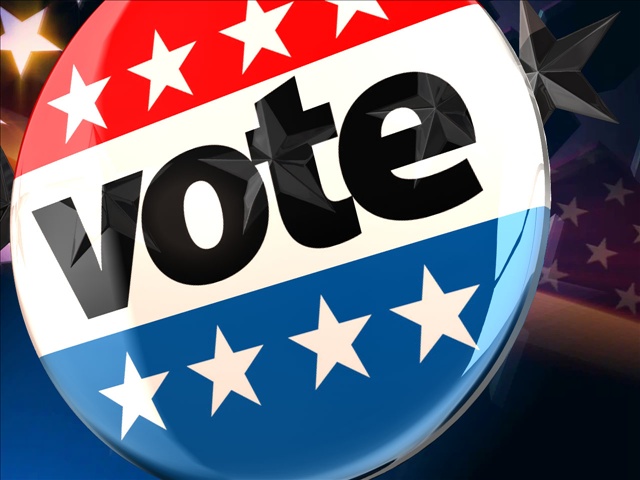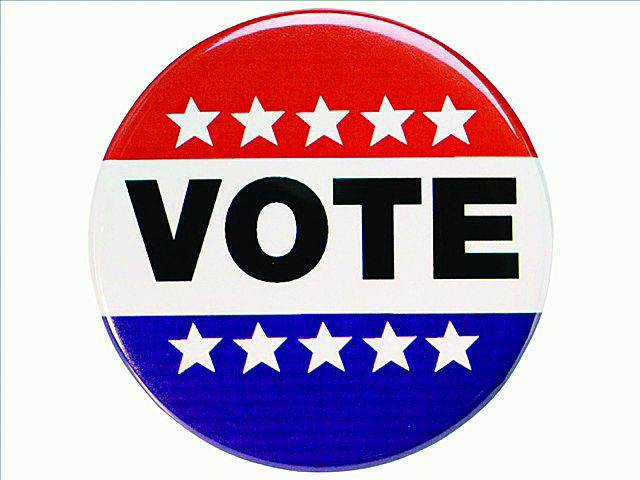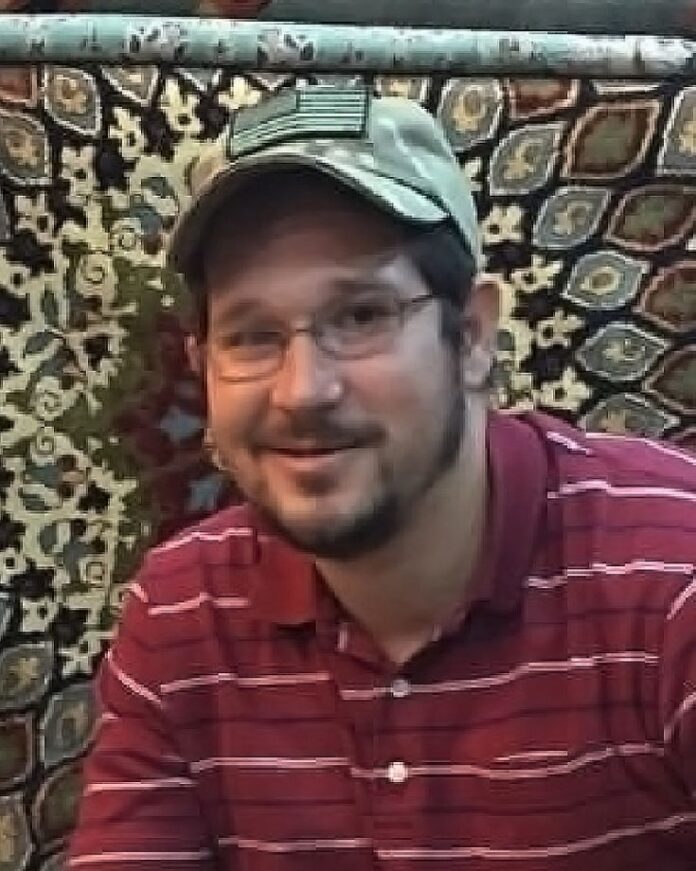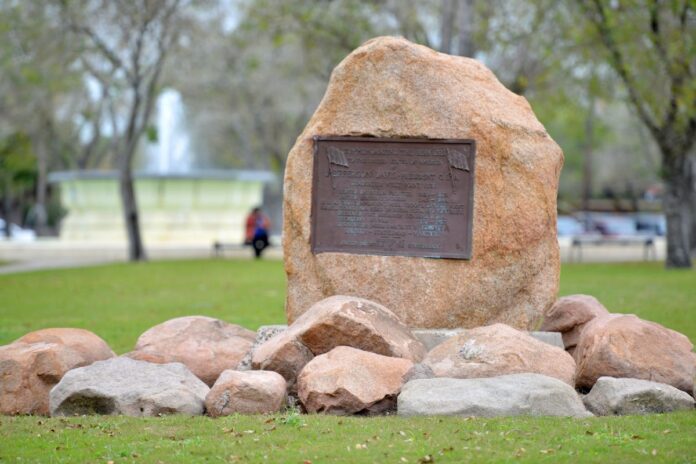Local leaders inspired by King
HARLINGEN — It was a day he’d never forget.
Martin Luther King Jr. had been assassinated. Jeffry Adickes, now the Harlingen police chief, asked his mother what the assassination meant.
“He was just trying to help people but others have hate in their hearts,” Adickes remembers her saying. Adickes still remembers that tragic day, and the civil rights leader’s influence on his life.
“As a lifelong student of leadership, there are a small number of people who I have followed for their courage, their kindness, their vision and their guidance,” Adickes said. “Martin Luther King Jr. is certainly in that group.”
Like many people, Adickes has a favorite Martin Luther King quote. “I have decided to stick with love. Hate is too great a burden to bear.”
George McShan, a Harlingen school board member, agreed King was a strong leader from whom others could learn.
“His intent was to treat everybody with fairness and equality,” McShan said. “As a result, I know my leadership is based on his principles. That’s how I practice. If you look at my body of work, all people are treated equally. My lens is focused on doing what’s right and what’s best for all people.
For the rest of this story and many other EXTRAS, go to our premium site, www.MyValleyStar.com.
Subscribe to it for only $6.99 per month or purchase a print subscription and receive the online version free, which includes an electronic version of the full newspaper and extra photo galleries, links and other information you can’t find anywhere else.
Texans go to the polls March 1 for presidential, local elections
The deadline is fast approaching for residents who want to vote in the March 1 primary elections but have not registered.
The last day to register is Feb. 1. With a presidential election on the ballot, officials are encouraging people who plan to register to do so sooner rather than later.
“Do it as quickly as possible. I recommend either coming straight into our office to do it or go online to get an application and fill it out and then hand carry it to us or put it in the mail,” said Remi Garza, administrator of CameronCounty’s Department of Elections and Voter Registration.
There are several ways people can access voter registration applications. They can find the applications on the Election’s Department website, the Texas Secretary of State website or they can visit the county’s Election’s Department in person and fill out an application there.
For more information, call 956-544-0809.
For the rest of this story and many other EXTRAS, go to our premium site, www.MyValleyStar.com.
Subscribe to it for only $6.99 per month or purchase a print subscription and receive the online version free, which includes an electronic version of the full newspaper and extra photo galleries, links and other information you can’t find anywhere else.
UTRGV releases campus carry recommendations
EDINBURG — The University of Texas Rio Grande Valley has released recommendations for the implementation of a law that will soon allow concealed handgun license holders to carry concealed handguns on its campuses.
If approved, gun-free zones may include athletic events and some residential areas, but concealed handguns will be allowed in classrooms.
The recommendations, made by an appointed working group, were reviewed and approved by UTRGV President Guy Bailey and will soon be presented to the UT Board of Regents for approval. The recommendations include the areas in which concealed handguns will not be allowed.
“I think we have something that follows the law and that enables us to provide safety and security on our campus,” Bailey said. “I’m not overly worried about it here for a number of reasons; many of our students are not old enough, and we also have very good students, so I trust our students.”
The suggested exclusion zones are shared residential facilities, child care facilities, patient care areas and athletic events, laboratories, watercraft, disciplinary grievance hearings, animal care areas and vivariums, camps for minors, and the mathematics and science academy in Brownsville.
Concealed weapons will be allowed in classrooms and single-resident dormitories in which there is the possibility of safe storage, the documents state.
After the passage last May of Senate Bill 11, which allows license holders to carry concealed handguns in higher education institutions in Texas, university officials took on the task of establishing regulations and limits as to where concealed handguns can be carried. The law allows for each university to set their own rules as long as they don’t prohibit concealed handguns throughout the entire campus.
The concealed carry law takes effect Aug. 1, 2016, for private and public universities and Aug. 1, 2017, for junior colleges. Open carry, which went into effect Jan. 1, is still outlawed at higher education institutions.
Ben Reyna, UTRGV’s associate vice president for security and campus affairs, was appointed to lead the 13-member workgroup — consisting of students, staff, faculty and Valley residents — that came up with the recommendations based on the law requirements and feedback gathered during public town hall meetings, emails and other conferences with stakeholders.
“We found our students, our faculty, our staff and even the external community very engaged on trying to find the best possible solution,” Reyna said. “Whether the persons were for concealed weapons or not… that certainly helped the working group in arriving at a good set of recommendations.”
One of the most talked about places that some town hall attendees wanted included as exclusion zones were classrooms, but Reyna said the working group agreed that having all classrooms excluded could infringe the law because most students attend the campus for class only.
“Since the primary on-campus activity for most UTRGV students is to attend class at one of UTRGV’s campuses, the Working Group believes prohibiting license holders from carrying concealed handguns in classrooms would have the effect of generally prohibiting license holders from carrying handguns on campus in contravention of the requirements of S.B. 11.,” the recommendation documents state.
The working group also recommended additional implementation measures, such as handgun training and mental health services for faculty and staff. Reyna said the need for training was an issue agreed by those for and against the new law.
“Training is going to be critical,” Reyna said. “Throughout the process we had students, faculty members and staff who provided great information specific to training. So we are looking forward to developing those training programs.”
Providing handgun storage was also discussed by the working group. The final recommendation states the risks of having public storage of guns outweighed the benefits.
“The Working Group recognizes the safety and security risks associated with transferring handguns to and from storage, particularly the increased risk of accidental discharges associated with unloading handguns for proper storage,” the recommendation documents state.
Even though the implementation of these measures is bound to cost the university money, Reyna said the working group didn’t take costs into consideration, focusing only on what they felt was necessary to move on with the implementation of the law.
The next step, he said, is to have these recommendations reviewed by the UT Board of Regents, which is set to happen sometime during the spring semester. Once the regents approve the guidelines, the work to inform, implement and enforce the new law will continue.
“Once that next step occurs, then we’ll go on to the next piece, which includes notices, policies and other things that have to be fully developed,” he said. “The plan is to try to go through this process as quickly as possible … but the institutions are given plenty of time to develop recommendations based on the uniqueness of their campus.”
Community comes together for memorial for serviceman
MERCEDES — A memorial ceremony for Staff Sgt. Michael Cinco will bring closure to a community mourning the serviceman who gave the ultimate sacrifice.
“We will make that memorial a special event here at the Mercedes school district,” Superintendent Daniel Trevino said. “He will never be forgotten.”
Family, friends and the community will come together for Cinco’s memorial in his hometown of Mercedes.
Cinco is a graduate of the Mercedes High School class of 2005.
The memorial will be held at the Mercedes Early College Academy auditorium on Feb. 5 at 10 a.m.
The school auditorium is located at 837 South Ohio Avenue.
The event is open to the public.
Trevino said Cinco enlisted in the military after high school with the understanding he was going to be in harm’s way.
“Our thoughts and our prayers go out to the Cinco family,” Trevino said.
A committee organized by Mercedes Mayor Henry Hinojosa and leaders in the community organized the memorial so the Cinco family and his immediate commander and other Air Force officials would be able to attend.
His commander will be the keynote speaker and will talk about Cinco and their time serving in the Air Force together.
A close friend of Cinco’s also will address the audience about growing up with him in Mercedes.
The event will be broadcast live over the Internet. The Mercedes school district technology department will have a link to the memorial available on the district’s website for viewing.
Del Castillo, a music group from San Antonio, will perform one song in honor of Cinco.
“It will bring closure and it says a lot about this community,” Hinojosa said. “It’s going to be an awesome event.”
Cinco’s funeral was held Jan. 6 at Randolph Air Force Base.
Cinco and five other servicemen, who were part of Operation Freedom’s Sentinel, were killed Dec. 21 when they were attacked by a Taliban suicide bomber on a motorcycle in Afghanistan.
Cinco had been assigned to the Air Force Office of Special Investigations, 11th Field Investigations Squadron, Joint Base San Antonio-Randolph.
Finding Jesus at local faith conference
HARLINGEN — A faith conference this past week was aimed at sharing the word of God and bringing people to Jesus.
“Its been incredible. People have been coming from around the world,” said Kevin Ortiz, senior pastor at Faith Pleases God Church.
The Harlingen church held its annual seven-day Faith Conference. It drew spiritual leaders from around the world, nation and state to share the word of God with people in the area.
Ortiz said the theme of the conference was creative faith — by believing in God anything is possible.
“We started last Sunday and we’ve been going every night,” Ortiz said. “We would love to see more people come who are really searching for God.”
Ortiz said the conference has gone beyond his desire and God has moved people, helped grow their relationship with God.
Grand Chief Matthew Coon Come of the Cree Nation in Canada closed the conference on Saturday night with his sermon.
Faith Pleases God ended its conference yesterday with its weekly Sunday service at 11 a.m. and conference meeting at 7 p.m.
Evangelist Kelley Leger of Houston was at the conference the entire week sharing stories of the Bible and helping lift the burdens of people by helping them receive God in their hearts.
“Certainly, we’ve seen hundreds of people come through the doors throughout the meetings,” Leger said. “It’s going so well. People here are so hungry and thirsty for Jesus.”
People attended the conference every day for prayer.
“It’s like coming home,” Leger said. “Faith Pleases God Church is amazing. The people there genuinely care.”
Leger evangelizes worldwide. He has known Ortiz for many years. And during the last two years, Leger has attended the Faith Conference in Harlingen.
“We’re letting people know how real God is in Harlingen,” Leger said.
Dr. Mark Spitsbergen attended the event on Friday. He has been a pastor preaching Christianity in California since 1986.
Pastor Imran Fazal from Pakistan attended the beginning of the conference. He evangelizes Christianity to the masses in his home country.
“He’s leading millions of Pakistani people to Jesus,” Ortiz said. “God is really using him there. Millions of Muslims are coming to Jesus through him.”
Faith Pleases God Church is located at 4501 W. Expressway 83 in Harlingen.
It started in the home of the founders Carlos and Aracelis Ortiz in San Benito. Then the church grew and a downtown Harlingen warehouse was converted into a church.
Finally, the church found its home at an abandoned lumberyard off the expressway in Harlingen, which has been the home of the church for more than 20 years.
Primary registration deadline nears
The deadline is fast approaching for residents who want to vote in the March 1 primary elections but have not registered.
The last day to register is Feb. 1. With a presidential election on the ballot, officials are encouraging people who plan to register to do so sooner rather than later.
“Do it as quickly as possible. I recommend either coming straight into our office to do it or go online to get an application and fill it out and then hand carry it to us or put it in the mail,” said Remi Garza, administrator of Cameron County’s Department of Elections and Voter Registration.
There are several ways people can access voter registration applications. They can find the applications on the Election’s Department website, the Texas Secretary of State website or they can visit the county’s Election’s Department in person and fill out an application there.
Applications accessed from the county or state website may be printed out and either taken to the Election’s Department or mailed in.
The county’s Department of Elections and Voter Registration is located at 1050 E. Madison St. in Brownsville.
Garza said he has brought in two additional employees to help process the applications and anticipates it getting busier as the deadline to register gets closer.
“The activity has been increasing not only because the primary is approaching but there is also a presidential election,” Garza said.
Registered voters will not only be casting ballots for a new president, there are several county seats up for election that would not normally be on the ballot this year, Garza said.
“Several county races that normally aren’t on the ballot this time around are on the ballot. For example, the county judge’s race is not normally on this cycle of the primary or the Cameron County Commissioner Precinct 4 is normally not on the ballot,” he said.
In addition, two new Cameron County court-at-law positions are on the ballot, as well as two additional commissioner seats.
“We’ve got a lot more happening on our ballot during this particular primary than we normally would on this cycle,” Garza said.
For more information, contact Cameron County’s Department of Elections and Voter Registration at 956-544-0809.
Confederate-era marker protested
BROWNSVILLE — Since its inception a month ago, an online petition to remove a historical marker honoring Confederate President Jefferson Davis from Washington Park in Brownsville has amassed almost 5,000 signatures.
The petition’s author, Brownsville resident Antonio Castillo, said his wife and children are of African American ancestry and that from the family’s perspective the monument in a public park is unwelcoming to descendents of slaves.
The petition had garnered national attention from The Southern Poverty Law Center, a civil rights group, and is facing opposition from locals including Craig Stone.
Stone is the education and programs coordinator for the Brownsville Historical Association and a member of the Sons of Confederate Veterans Mechanized Cavalry.
Stone has since launched his own online petition to keep the historical marker in Washington Park .
Professor James Mills from the University of Texas Rio Grande Valley history department said the marker commemorates military history that precedes the Civil War and is part of Brownsville ‘s history.
Mills described the petition to have the monument removed as “political correctness gone wild.”
“We have a lot of dark history in the past,” he said. “We can reinterpret it today but it doesn’t change the past. I think it is important that it stay there in Washington park.”
Local leaders inspired by King
HARLINGEN — It was a day he’d never forget.
Martin Luther King Jr. had been assassinated. Jeffry Adickes, now the Harlingen police chief, asked his mother what the assassination meant.
“He was just trying to help people but others have hate in their hearts,” Adickes remembers her saying. Adickes still remembers that tragic day, and the civil rights leader’s influence on his life.
“As a lifelong student of leadership, there are a small number of people who I have followed for their courage, their kindness, their vision and their guidance,” Adickes said. “Martin Luther King Jr. is certainly in that group.”
Like many people, Adickes has a favorite Martin Luther King quote. “I have decided to stick with love. Hate is too great a burden to bear.”
George McShan, a Harlingen school board member, agreed King was a strong leader from whom others could learn.
“His intent was to treat everybody with fairness and equality,” McShan said. “As a result, I know my leadership is based on his principles. That’s how I practice. If you look at my body of work, all people are treated equally. My lens is focused on doing what’s right and what’s best for all people.
Mayor Chris Boswell said when he thinks of Martin Luther King, he remembers the famous “I Have a Dream” speech.
“My mind always goes first to that line where he hopes that his children will one day live in a nation where they will not be judged by the color of their skin but by the content of their character,” Boswell said. “That’s such a powerful and unifying sentiment. We should all want that for ourselves and especially for our children. He was a great American.”
Enriqueta Ramos, a retired anthropology professor now living in San Benito, said King’s “Dream” served the community as a model, a legacy to follow.
“I personally have always used his sacrifices as an example of what it took to get justice and equality in our society and systems,” she said.
“The educational system changed and more African Americans were admitted to universities and colleges which at one time were denied to them. I truly believe that because of the systems changing, our entire American society has changed and benefitted from those changes.”
It appears that Martin Luther King Jr.’s influence reaches across generations, ethnicities and genders. It’s an ever-growing tapestry of people who have been touched by his principles and incorporated them into their own lives.
Martin Luther King Jr.’s legacy a life-changer for school trustee
HARLINGEN — The change initiated by Martin Luther King Jr. rippled across numerous sectors of society.
Certainly, the first purpose was to deal with the disenfranchisement of African Americans, said George McShan, who has served on the Harlingen school board since 1988.
Today, as the nation observes Martin Luther King Jr. Day, McShan and so many other Americans consider the influence of the civil rights leader. The significance of King’s movement is very strong to McShan, because he remembers how his life changed.
“We did not have the right to vote, we did not have the right to participate in the American democracy as the Constitution had so stated,” said McShan, who graduated from a segregated high school in 1965.
The Plessy vs. Ferguson decision of 1896 had ruled that blacks must attend schools that were “separate but equal.” However, in the 1950s the Supreme Court ruled schools must be desegregated with all deliberate speed.
That single word “deliberate” was the loophole many states used to drag their feet in desegregating the schools. McShan’s high school in Elgin, Texas, wasn’t desegregated until 1968. This occurrence appears especially peculiar considering the civil rights bill was passed in 1964 and the voting rights act in 1965.
Nevertheless, in spite of lingering inconsistencies and unanswered questions, opportunities suddenly opened for African Americans that had never before been available.
“I had an opportunity to go to college,” he said. “I was encouraged to go to college because we could vote, we could participate. The evolution of the Constitution was made whole. That was the intent of the forefathers all along. We were so excited about the opportunity, to be a full citizen.”
He refers to himself and others who lived in the 1960s and 1970s as the “first generation.” They had known the United States when they couldn’t vote and could not enjoy the same educational opportunities as others. Lack of education was necessarily a precursor to low wages.
That same generation also experienced the sudden change in their lives, in which Martin Luther King played a major role. McShan himself feels he has benefitted greatly from King’s influence. He later taught high school science in Brownsville and spent 19 years at Texas State Technical College as the dean of instruction. He was the first African American president of the Texas Association of School Boards. Many African Americans from the “first generation” took the same advantage of those.
Certainly, Martin Luther King would be proud of the influence he’s had on so many lives, right?
Unfortunately, that may not be the case. McShan feels today’s generation of African Americans has forgotten the significance of King’s legacy. They don’t remember the struggle. Furthermore, family values have declined.
“They do not know the history and do not appreciate the history,” he said. “Because of that appreciation, families were stronger back then. You didn’t have many single-parent families. Children today do not have a support system of family. What influenced people back then was your family, your education and your faith.”
McShan also expressed concern that people may be relying too much on programs such as food stamps, which are intended to provide temporary assistance. He said those are very good programs but emphasized the word “temporary.” He also feels that social media and peer pressure seem to influence young people more than families.
“I think Dr. King would be very disappointed,” he said. “Disappointed to the point that not enough of us are keeping that dream alive.”
However, while the movement may not have reached all its goals yet, the words can’t be erased, nor can the ideas they convey. That momentous day decades ago when Martin Luther King delivered his “I Have a Dream” speech on the steps of the Lincoln Memorial is firmly cemented in the country’s history — and in the minds and hearts of so many.
“I have a dream that one day on the red hills of Georgia the sons of former slaves and the sons of former slave owners will be able to sit down together at the table of brotherhood,” King said, his passionate voice resonating across the Washington Mall.
The principles he conveyed about equality for all people gave them relevance to all ethnic groups, McShan said.
“His dream was for all people,” he said. “There are gender issues. We look at what has happened for women, how they benefitted from Dr. Martin Luther King’s dream. We look at what has happened to equality for all people, even those who have different orientations.”
The bold permanence of King’s words is well illustrated in a powerful stone sculpture in Washington, D.C. On a cold January evening, Abraham Lincoln gazes stoically across the Washington Mall, white with winter snow.
To his right, sidewalks wind their way toward the Tidal Basin. Martin Luther King’s image seems even now to convey his power and passion, strong enough to move a nation.
He looks across the Tidal Basin to the Jefferson Memorial now lit with floodlights.
Behind him, a few blocks from the Washington Mall, stands the White House, on which African slaves did much of the labor. And there resides the nation’s first black president or, as McShan put it, an educated president who happens to be African American.

